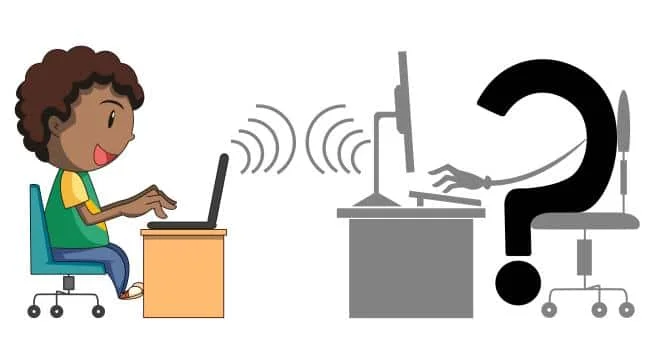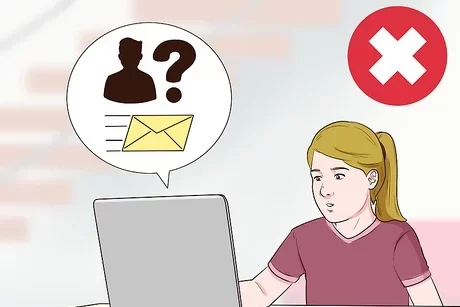We, as adults, watch movies, play games, shop, learn, and interact with our friends and do almost everything we can do with the help of the internet. But when it comes to our kids’ online activities, we make sure that our kid is away from toxicity, bad influence, harmful content, and cyber-attacks. Therefore, encouraging safe internet practices is a must!
Though many kids are confident that they are aware of safety precautions they should know while being on the internet, but they genuinely have no idea of the consequences of sharing much more information about themselves on the internet. Therefore, to assist you in this article, we will be discussing a few tips to encourage safe internet practices in your child. But before that, let’s know why we need to encourage safe internet practices.
- Need of safe internet practices
- Know about Internet
- Early it is – Better it is
- Define the rules but be flexible for safe internet practices
- Act yourself, don’t just tell
- Keep personal and professional information limited
- Make online purchases from secure and verified sites
- Use of social networking sites safely
- Have a friendly conversation about safe internet practices
- Some extra safety tips for safe internet practices
- Parting words
Need of safe internet practices
The number of internet users is increasing daily, and so cybercrime is. Therefore, safe internet practices are important to protect your online data from unauthorized access or misuse. Internet safety is important for everyone, no matter what your age is. But it’s a must be for parents to keep a check on their child’s internet practices to keep them away, especially from age-appropriate images, videos, and information.

As per recent reports, almost 47% of immature people receive intimidating or nasty messages online, and over 68% of children admitted that they’ve been through cyberbullying. Therefore, the ways to encourage safe internet practices are as follows
Know about Internet
Being parents, you should try to know everything you can about the internet. So that when you talk to your child about it, you can educate about the internet and know what children of this age basically do on the internet. This way you can protect them from harmful content.
Early it is – Better it is
If your child is going to use Internet facilities or has started using them, you should start teaching them and have a friendly conversation about the do’s and don’ts of the internet. They should start following practices from such a young age to keep them away from these distractions and focus on careers. It’s important to teach them before they are trapped in the illusion of the internet.
Define the rules but be flexible for safe internet practices
In this era where everything is found online, children sometimes spend most of their hours surfing the internet on mobile phones/laptops. Therefore, parents need to set a limit on their use so that they can maintain a balance in studies and entertainment. Moreover, involve your child in the discussion of setting their time and rules of using the internet so that they do not feel that you’re forcing something on them.

Act yourself, don’t just tell
It’s true that children learn things quickly what they see rather than just being said and not done. Show them different practices that you follow to keep yourself safe from internet threats. For example, tell your kid how you create a strong password on different websites where your information is stored to keep it safe and secure from hackers to access or third parties to steal your personal information.
Keep personal and professional information limited
Tell your child not to enter their personal or professional information on any website if it’s not required or the site is not secure to keep your information safe. After all, leaking of your information can lead to a number of frauds and scams with you or by your name with anyone else. So, taking advice from elders before doing so and verifying if the website is legal or illegal is a perfect idea.
Make online purchases from secure and verified sites
Anytime or anywhere when you make an online transaction, you need to add your credit card details or UPI ID details to make the payment. That’s the information cyber-attackers are more interested in. So, guide your child to only provide this sensitive information to secure and encrypted sites.
Use of social networking sites safely
There are pros and cons of everything on the internet, and so social media has. Social Media Platforms such as Facebook, Instagram, and Twitter allow kids and adults to share photos, videos, and their thoughts with people worldwide. So, you should teach them what to do and what not and let them know what they can post if they’re comfortable if the world sees it. If they share something with their friends, it’s still possible that it is not in their safe hands. So, they need to be aware and should not trust anybody on social media.
Have a friendly conversation about safe internet practices

Encourage your child to come to you and talk to you if they are ever in a problem. You should assure them that if they face any problem or get into trouble online, you will be there for them no matter what to protect them and guide them to find a solution for the same. Therefore, you should, too, keep in mind that your child can encounter any online problems without doing anything wrong. You, too, should understand the situation and react accordingly.
Some extra safety tips for safe internet practices
- Never share any kind of information on the internet if the site is not secure.
- Avoid Interaction with strangers on the internet
- Never visit any age-restricted sites.
- Never stay online if you feel your parents won’t like it.
- Post pictures in which you feel comfortable with parents’ permission.
- Do not download anything from any website which is not secure.
- Always share everything with your parents.
- Tell them not to click on ant pop-ups.
- Install security software
Parting words
These are a few ways to keep your child safe from the internet. Make sure you keep these tips in your mind and guide your kids to follow them. The early they learn, the more responsible and aware they will be about the internet and safe internet practices.
Share with your friends